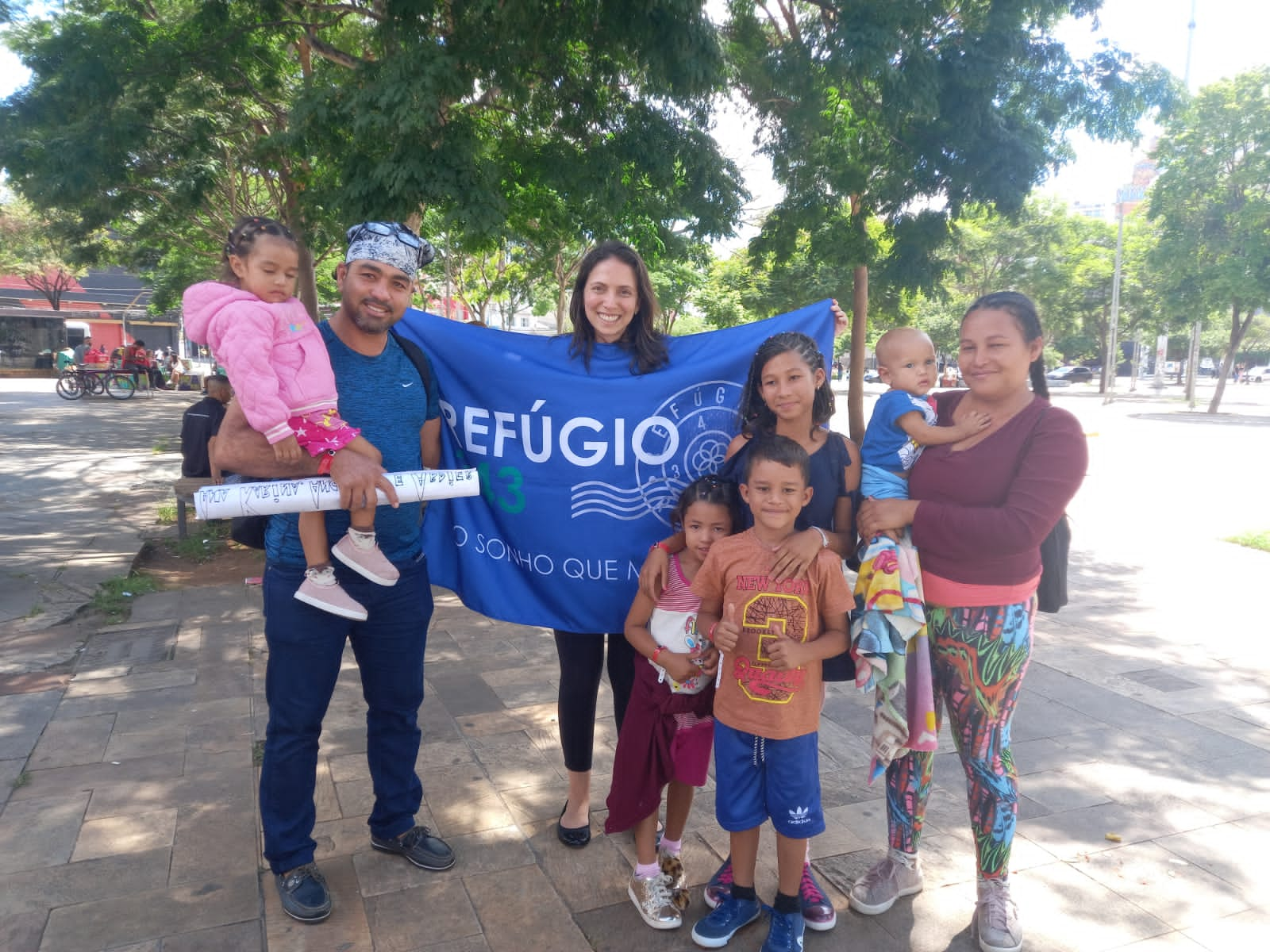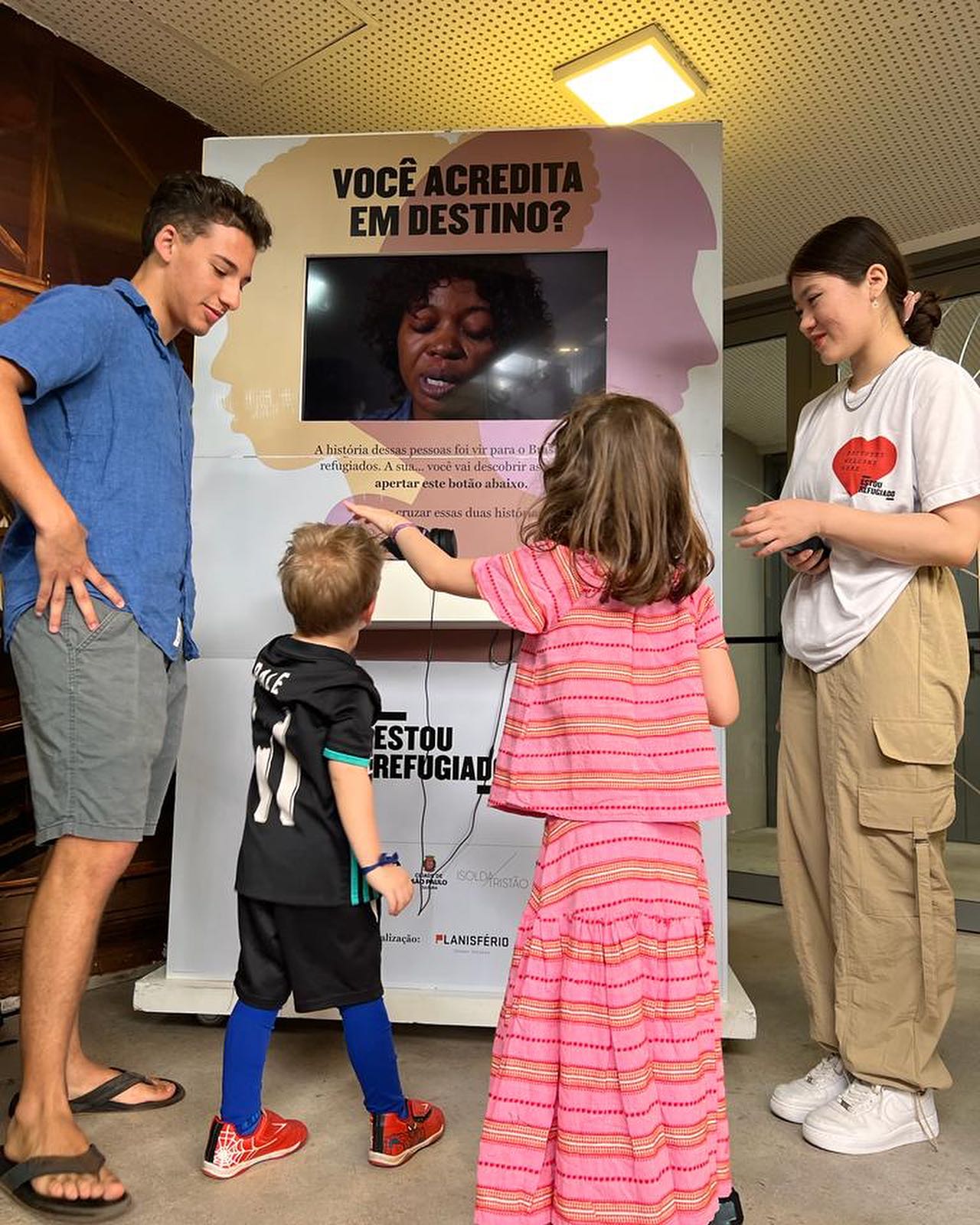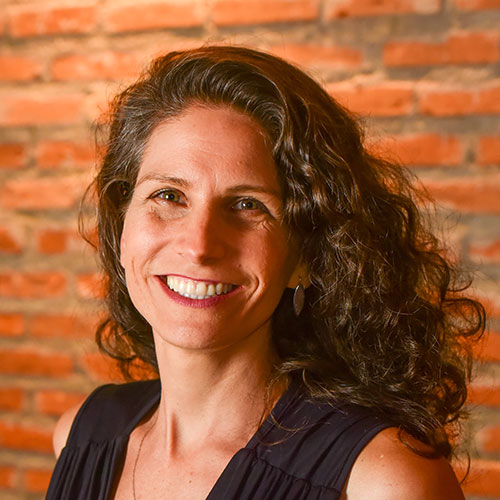Brazil emerges as a country with a diversity of nationalities of immigrants and refugees
Third-sector organizations are the centrals to inclusion and promote the reception, training and internalization of immigrants and refugees in the country


Brazil receives around 400 immigrants and refugees from Venezuela daily. Many people also arrive from Cuba, Angola, Nigeria, Afghanistan, Peru, Lebanon and a hundred other countries in search of new life opportunities. According to a report by the Observatório das Migrações Internacionais, in 2022, natives of 139 countries requested refuge in Brazil, making the country one of the nations with the greatest diversity of nationality of immigrants and refugees in the world.
Among the main causes that lead to forced displacement are civil war, political persecution, violence and human rights violations. The problems, however, do not end with immigration and asylum requests. On the contrary, barriers linked to language and cultural differences make inclusion in the country difficult.
According to Carolina Nunes, operations and new business manager at the Refúgio 343 organization, which promotes the socioeconomic reintegration of refugees and migrants in Brazil, prejudice against foreigners, that is, xenophobia, is still the biggest challenge for the good adaptation of this population.
“There is a mistaken perception about refugees and immigrants, which leads precisely to a lack of understanding of the reasons why these people are leaving their countries. Migrants do not compete against residents and tend to complement the pre-existing workforce, bringing economic benefit to the entire society,” he explains.
Reception
Created in 2019, Refugio 343 began its operations informally, at the height of the widespread crisis faced by Venezuela. “1,500 Venezuelans were arriving in Brazil every day and Fernando Rangel, who later founded the organization, mobilized to support some families”, says Carolina Nunes.
He started by offering hospitality as a natural person and together with several friends, he raised money and rented a property, number 343, in São Paulo. The first family welcomed had four people. The friends split up to help: one created the CV, the other helped with professional insertion, a third collected furniture, the other enrolled the children in school.
Soon this family gained autonomy and in a short time, they were able to welcome the second, then the third… when they had welcomed ten families, they realized it was time to set up an NGO. Today, in addition to promoting the internalization of this population and their socioeconomic reintegration, the focus is on Escola Refúgio, which offers professional courses, Portuguese language courses and intercultural education.
“We provide bridges with companies that want to hire refugees and migrants. We support you with the preparation of your CV and all necessary documentation, then we direct you to the best opportunities and monitor the entire selection process, so that duties and rights are fulfilled”, says Carolina.

Professional placement
Refugio 343 has been collaborating with Operação Acolhida, a program coordinated by the Federal Government to receive Venezuelans in a refugee situation in Boa Vista, the capital of Roraima. Since then, it has promoted the internalization of almost four thousand people, in more than 236 cities, in 20 states plus the Federal District.
Interiorization is carried out in partnership with people, national and international organizations and companies, which help with initial transport and accommodation costs, the search for employment and housing and inclusion in the Brazilian health and education systems. Such dedication earned him the title of The Best ONG in Brazil in 2022 and the Empreendedor Social award from Folha de S.Paulo.
The Instituto Estou Refugiado is another organization with a strong presence in employability. Created in 2019, it inserted more than two thousand immigrant and refugee people into the job market through an institutional relationship with a group of 200 companies that offer inclusion vacancies.
“Many companies are looking to hire based on ESG and even though racial issues prevail today, there is also space for immigrants and refugees”, points out Luciana Capobianco, founder and executive director of Instituto Estou Refugiado. She was also touched by the cause during a humanitarian crisis.
“In 2015, with the war in Syria, many images circulated of bodies floating in the Mediterranean, people who left everything behind, without perspective. And many Syrians arrived in Brazil. There I thought I could do something, offer a fresh start for these people who were arriving without speaking our language, focus on socioeconomic integration… it was nothing planned,” she recalls.
Language barriers
For Luciana Capobianco, founder and executive director of Instituto Estou Refugiado, the language barrier is the main factor that hinders professional placement. She highlights that different profiles of immigrants and refugees arrive in Brazil:
“Many people without academic training and also people with higher education arrive, such as doctors, engineers, software engineers, teachers, etc. But regardless of qualifications, companies prefer to hire those who speak Portuguese and take time to learn the language. Many still need to have their diploma revalidated. So it’s a huge journey.”
According to Luciana, sometimes this causes immigrants to change their minds midway and decide to go to another country. “It has happened a lot with the Afghan population, who arrive in Brazil and then change their route to the United States, because many already speak English and do not need to wait two years to learn Portuguese and start their lives again,” she says.
Forced displacement
In addition to promoting entry into the job market, third-sector organizations play a relevant role in drawing attention to the cause. “It is necessary to give voice and protagonism to the people who are arriving, see what they are saying and put them in focus”, argues the founder of Estou Refugiado.
Luciana is a journalist and started her activism by communicating about the cause, through content production and storytelling. An emblematic project was a social experiment on the Tinder platform:
“We first created a profile of a foreign engineer who spoke five languages and he received 30 meeting requests. A week later, we changed the profile and changed the word foreigner to refugee. There were only 3 orders. The experiment was to promote reflection on prejudice and intolerance,” she says.
She also coordinated, in partnership with the NGO Humans Right Watch, the creation of an interactive totem about a Syrian family that fled the war and had to cross dozens of borders to reach Sweden. The totem allowed people to see the story of a refugee and was made available to the public in a photo exhibition.
“It was a short video, very exciting and at the end, when it seemed like it was over, the totem printed a CV. We created a provocation to spread that message, take the need for the work forward, the public could also be an agent of impact”, she reflects.


Prejudice and intolerance
At least 108 million people around the world were forced to leave their homes last year, that is, more than one in every 74 people, according to the most recent report from UNHCR, the UN refugee agency. Therefore, concerned about xenophobia, Refúgio 343 also promotes awareness campaigns through messages that promote empathy and understanding.
The objective is to build communication bridges and support networks that promote solidarity between refugees and immigrants and the local community. Venezuelans and the football players Yeferson Soteldo and Tomás Rincón, who currently play for Santos, are two ambassadors participating in this campaign at Refúgio 343.
“They help to spread the cause and support our work to raise awareness in society with their own example. Because they are examples of success, of people who came on their own and who contribute to our country”, says Carolina Nunes, operations manager at Refúgio 343.
Carolina warns that climate change is likely to deepen forced displacement in the next decade. Therefore, the cause of immigration and refuge must be increasingly popularized and defended. “We are all human beings and at some point we may need support from another nation to move forward, because we don’t know the fate of our country, we don’t know what could happen tomorrow or the day after”, she argues.
Want to support this cause?
All NGOs mentioned in this report develop their actions through donations and volunteering. For more information, visit the website, follow social media or contact us by email:
Refúgio 343
Site: https://refugio343.org/
Linkedin: https://www.linkedin.com/company/refugio343/mycompany/
Facebook: https://www.facebook.com/Refugio343
Instagram: https://instagram.com/refugio343_
E-mail: info@refugio343.org
Estou Refugiado
Site: https://estourefugiado.org.br/
Linkedin:: https://www.linkedin.com/company/estourefugiado/
Facebook: https://www.facebook.com/estourefugiado
Instagram: https://www.instagram.com/estourefugiado/
E-mail: contato@estourefugiado.org.br



